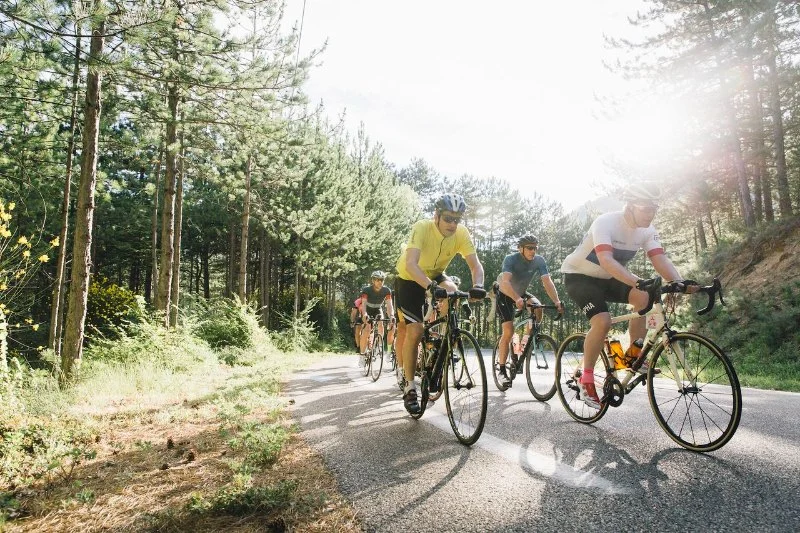
- 1. Getting Started with a Touring Group
- 2. Group Cycling Etiquette: Do’s and Don’ts
- 3. Communication in a Touring Group
- 4. Safety Tips When Riding with a Touring Group
- 5. Real-Life Experience: Riding with a Touring Group
- 6. Recommended Gear for Group Rides
1. Getting Started with a Touring Group
Joining a touring group can be a rewarding experience for any cyclist. Whether you’re a seasoned rider or a beginner, riding with a group offers a chance to explore new places and improve your skills. However, it’s important to understand the dynamics of group cycling to ensure a smooth and enjoyable ride for everyone.
1.1 Choose the Right Group
Before you join a touring group, it’s important to select one that matches your skill level and goals. Some groups are designed for recreational riders, while others may focus on longer, more challenging routes. Check the group’s pace, distance, and experience level to ensure it’s a good fit for you.
1.2 Know the Route
Familiarize yourself with the route beforehand, especially if it’s a long or unfamiliar ride. Knowing the stops, terrain, and rest points will help you feel more confident and prepared. Most touring groups provide route maps, but it’s always good to do your own research too.
2. Group Cycling Etiquette: Do’s and Don’ts
Understanding group cycling etiquette is key to maintaining harmony and safety on the road. Here are some essential do’s and don’ts to keep in mind when riding with a touring group.
2.1 Do: Ride Predictably
Ride in a straight line and avoid sudden movements. This ensures that the rider behind you can anticipate your actions and react accordingly. Predictability is crucial in preventing accidents, especially when riding in a tight formation.
2.2 Don’t: Ride Side by Side (unless allowed)
While it’s tempting to ride side by side and chat with fellow cyclists, it’s generally considered poor etiquette unless the road is wide enough for everyone to pass safely. Riding two abreast can block traffic and create dangerous situations, particularly on narrow or busy roads.
2.3 Do: Signal Your Intentions
Always signal your intentions, whether you’re turning, stopping, or slowing down. Use hand signals to indicate lane changes or upcoming stops. This helps other riders in the group stay aware of what’s happening ahead of them.
2.4 Don’t: Brake Abruptly
Braking suddenly can be dangerous, especially if the group is riding close together. Always try to gradually ease off the brakes and give others a heads-up if you need to stop. This prevents collisions and allows the group to maintain a steady pace.
3. Communication in a Touring Group
Effective communication is vital for group rides. Here’s how to ensure clear communication within the group:
3.1 Verbal Communication
During a group ride, verbal cues are essential. Call out things like "Car back!" if there’s a vehicle approaching from behind, or "Stopping!" if you’re coming to a halt. Always make sure your voice is loud enough for the group to hear, especially if you’re at the back.
3.2 Non-Verbal Communication
In addition to verbal cues, hand signals are also crucial in indicating turns, stops, or obstacles ahead. Use clear and consistent signals that the group can easily recognize, such as an arm extended left or right for a turn, or a downward arm for slowing down.
4. Safety Tips When Riding with a Touring Group
Riding with a touring group can be a fun and rewarding experience, but safety should always be your top priority. Here are some important safety tips to keep in mind:
4.1 Maintain a Safe Distance
Always leave enough space between you and the rider ahead of you. This will allow you to react quickly if they slow down or stop unexpectedly. A good rule of thumb is to keep a distance of at least one bike length between you and the rider in front of you.
4.2 Keep Your Bike in Good Condition
Before joining a touring group, make sure your bike is in top condition. Check the tires, brakes, chain, and gears to ensure they’re functioning properly. A breakdown during the ride can be frustrating for both you and the group.
4.3 Be Aware of Surroundings
Stay alert to your surroundings. Watch for obstacles, road hazards, and other traffic. Always be prepared for the unexpected, and be ready to make quick adjustments to avoid danger.
5. Real-Life Experience: Riding with a Touring Group
One memorable experience comes from Sarah, an avid cyclist who recently joined a weekend touring group ride. On her first ride, she was nervous about keeping up with the pace and fitting in with the group dynamics. However, after a few minutes of riding, she realized that everyone in the group communicated well and rode predictably, which made the experience both safe and enjoyable. She learned that by following group etiquette and staying aware of her surroundings, group rides could be a fantastic way to improve her cycling skills and make new friends.
6. Recommended Gear for Group Rides
To ensure a comfortable and safe ride with a touring group, you’ll need to have the right gear. Here are some essential items to bring along:
- Helmet: Always wear a helmet for safety.
- Cycling Gloves: These provide comfort and protection in case of a fall.
- Water Bottle: Stay hydrated throughout the ride.
- Proper Cycling Shoes: Cycling shoes improve power transfer and comfort on longer rides.
- Repair Kit: Carry a basic repair kit in case of a flat tire or minor mechanical issues.
For more gear recommendations and cycling tools, visit Cycling Guider, where you can find the best products tailored to your cycling needs.

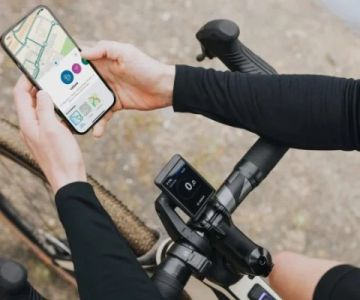



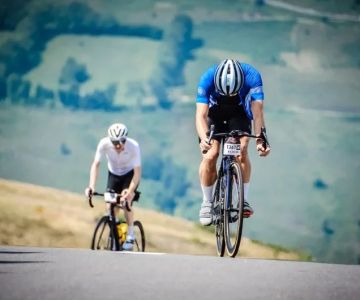
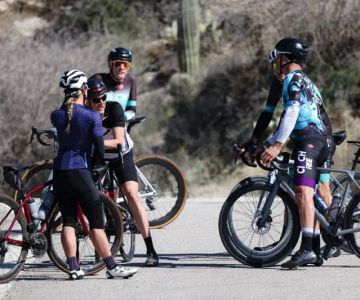
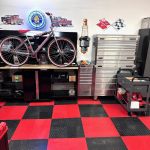 Billet BMX5.0 (2 reviews)
Billet BMX5.0 (2 reviews)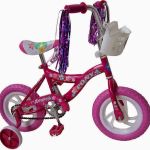 Far East Children Bicycle Factory1.0 (1 reviews)
Far East Children Bicycle Factory1.0 (1 reviews) Archer Motorsports, Inc.4.0 (8 reviews)
Archer Motorsports, Inc.4.0 (8 reviews) YEP Bike Works4.0 (55 reviews)
YEP Bike Works4.0 (55 reviews)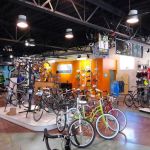 Gorham Bike & Ski4.0 (498 reviews)
Gorham Bike & Ski4.0 (498 reviews) Alchemy Bikes4.0 (37 reviews)
Alchemy Bikes4.0 (37 reviews) How to Teach Kids to Ride a Bike: A Step-by-Step Guide for Parents
How to Teach Kids to Ride a Bike: A Step-by-Step Guide for Parents Tips for Riding on Busy City Streets: Smart Strategies for Urban Cyclists
Tips for Riding on Busy City Streets: Smart Strategies for Urban Cyclists Best US National Parks for Mountain Biking: Ride Epic Trails Across America
Best US National Parks for Mountain Biking: Ride Epic Trails Across America Best Aero Helmets for Time Trials and Racing
Best Aero Helmets for Time Trials and Racing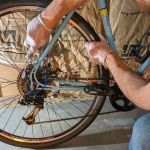 How to Clean and Lubricate Your Bike Chain Like a Pro
How to Clean and Lubricate Your Bike Chain Like a Pro 10 Must-Have Items for Long-Distance Cycling Trips
10 Must-Have Items for Long-Distance Cycling Trips